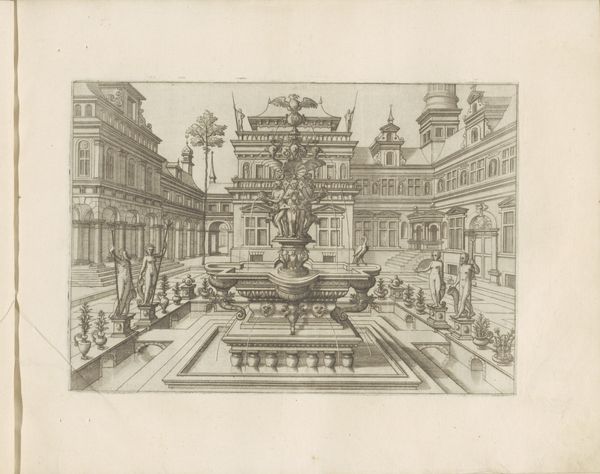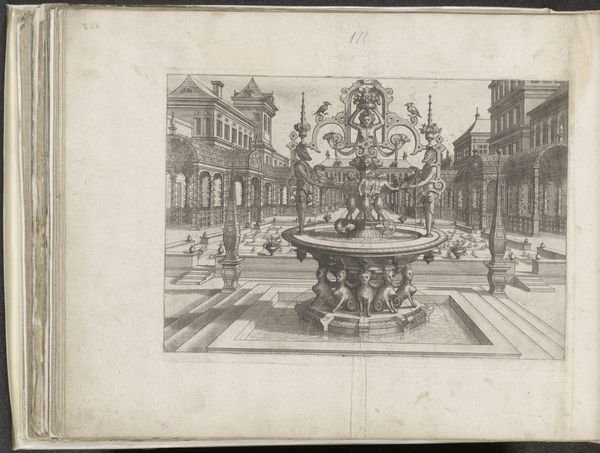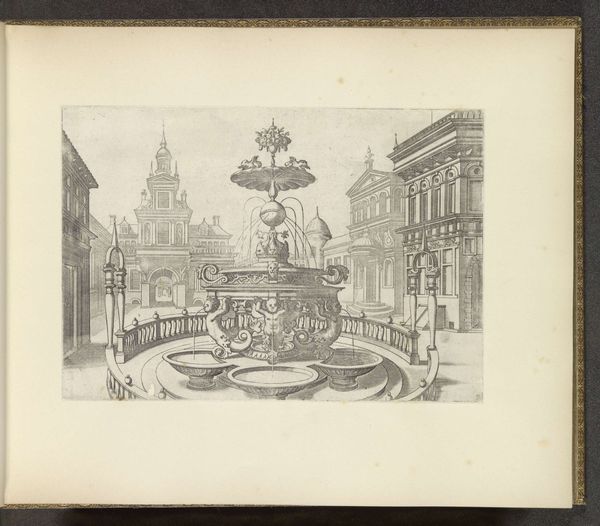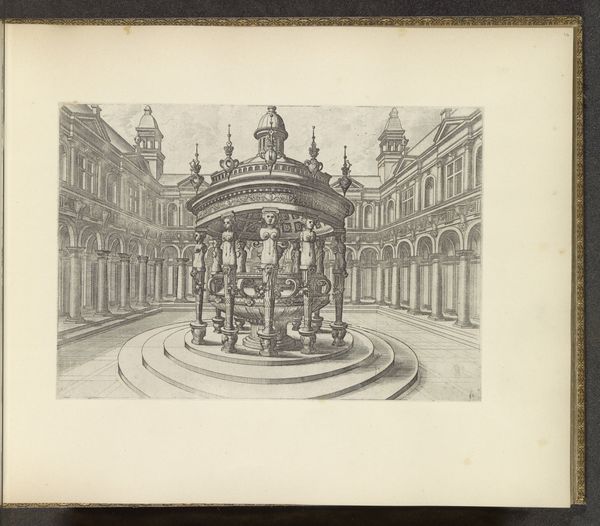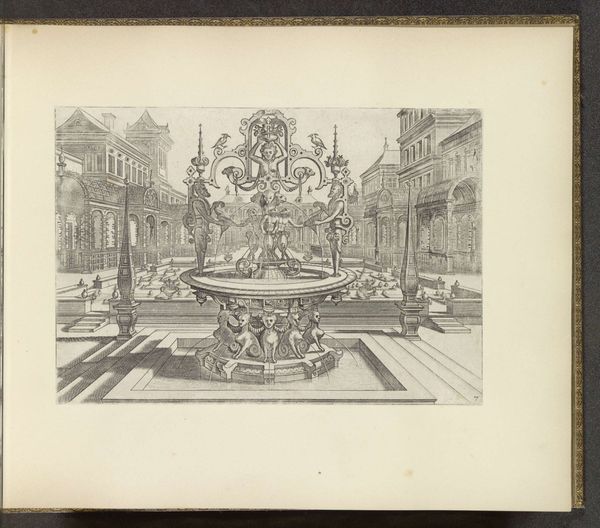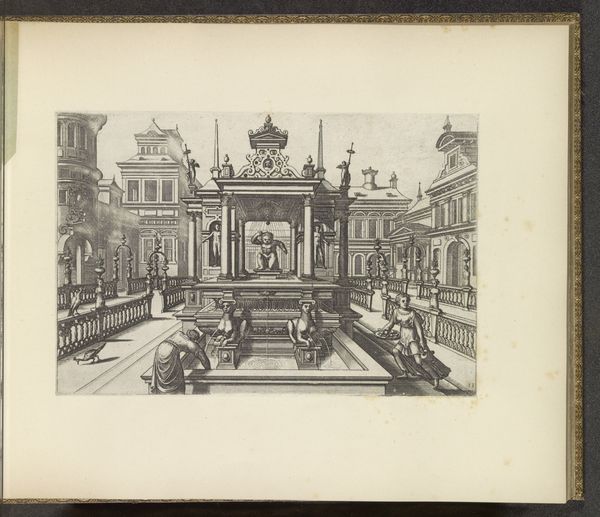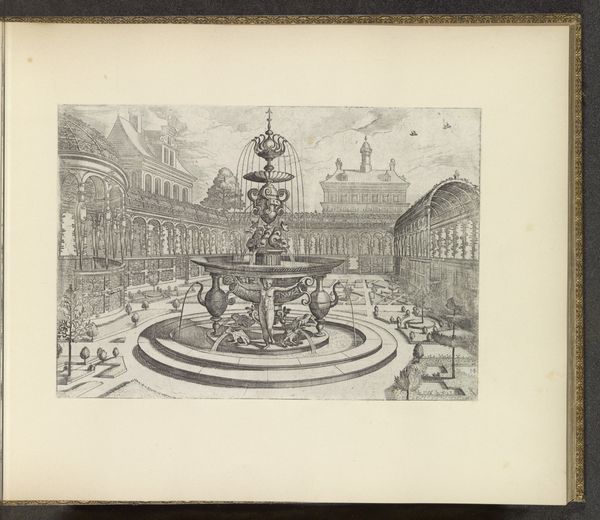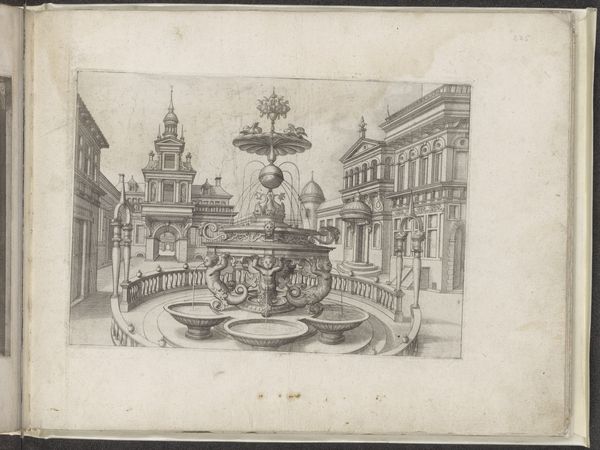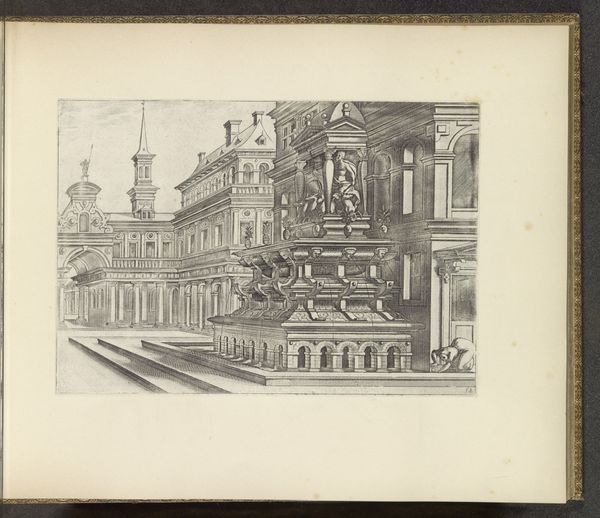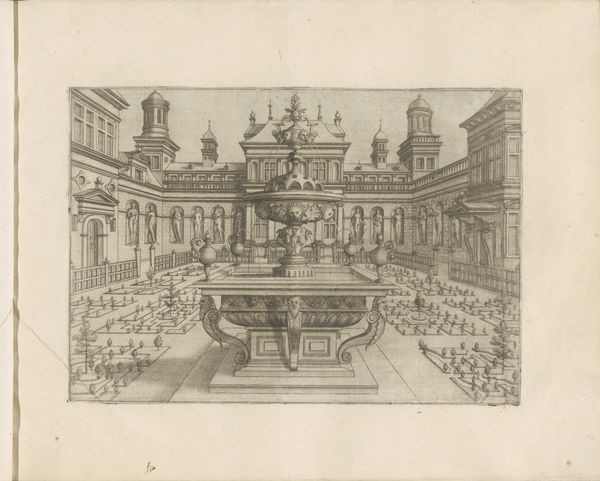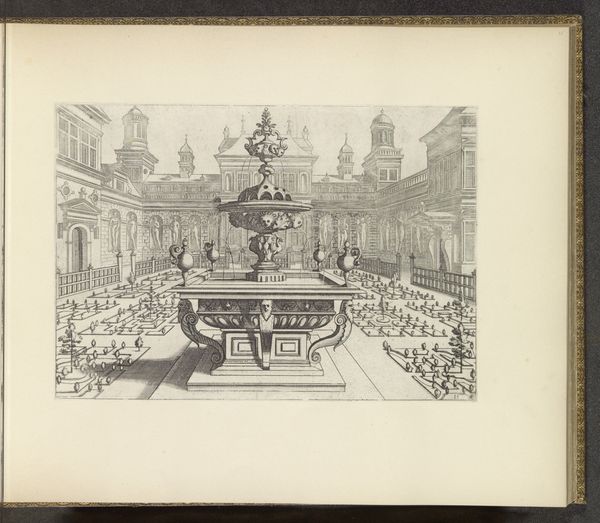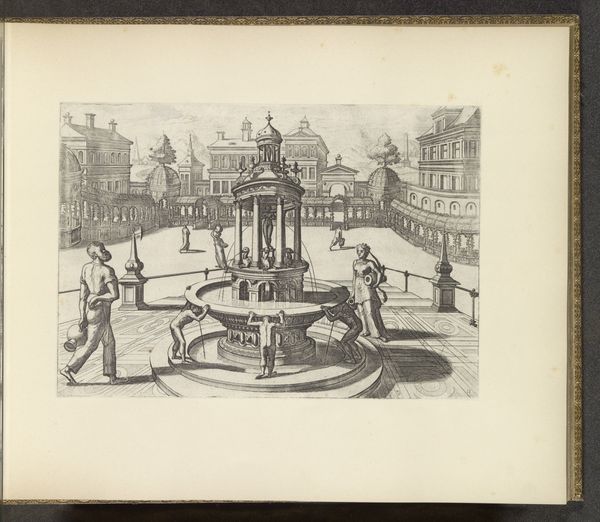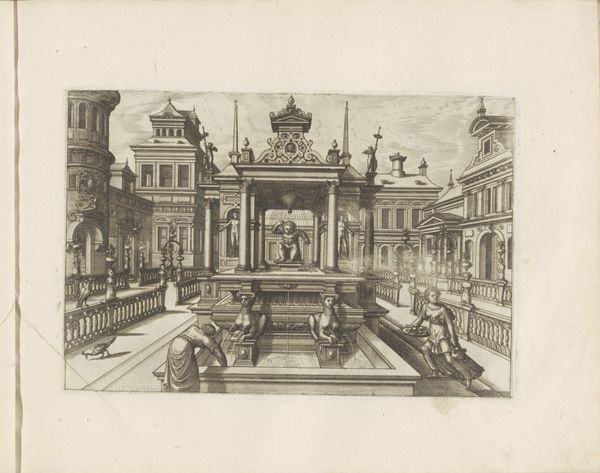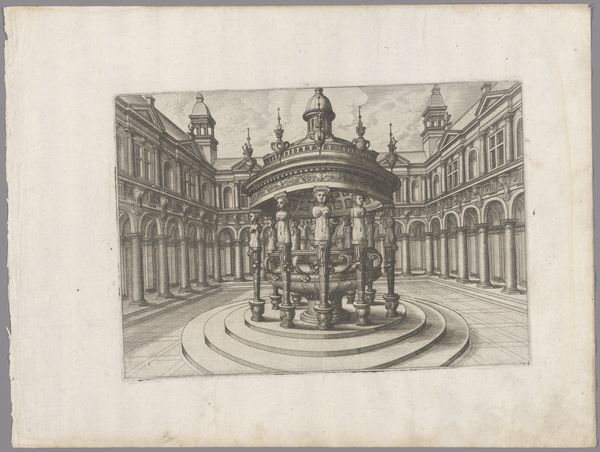
Stadsplein met een fontein omgeven door beelden en potten met planten c. 1600
0:00
0:00
johannesoflucasvandoetechum
Rijksmuseum
drawing, print, ink, engraving, architecture
#
drawing
#
aged paper
#
toned paper
#
light pencil work
#
baroque
# print
#
sketch book
#
landscape
#
personal sketchbook
#
ink
#
geometric
#
pen-ink sketch
#
pen and pencil
#
pen work
#
sketchbook drawing
#
cityscape
#
sketchbook art
#
engraving
#
architecture
Dimensions: height 171 mm, width 248 mm
Copyright: Rijks Museum: Open Domain
Curator: Let's turn our attention to "Stadsplein met een fontein omgeven door beelden en potten met planten," or "City Square with a Fountain Surrounded by Statues and Pots with Plants," a print made around 1600 by Johannes or Lucas van Doetechum, here on loan from the Rijksmuseum. Editor: Immediately, I’m struck by its formal, almost theatrical air. It’s a very controlled, meticulously constructed space, isn't it? It feels more like a stage set than a bustling public square. Curator: Absolutely. Consider the social context. City squares like this weren't just for leisure. They were sites of power, designed to project wealth and control. The geometric arrangement and classical statuary would reinforce prevailing hierarchical social norms of the period. Who was afforded leisure and visibility in this kind of space? Whose stories are not included in this grand vista? Editor: Yes, that symbolic language is quite overt. The fountain becomes this elaborate, multi-tiered statement of abundance and civic pride. But look closer—the symbolism runs deeper. The figures, the eagle at the top… aren't these references to specific classical myths or even dynastic claims? There's a deliberate attempt to link the present to a glorious, perhaps even imagined, past. Curator: Exactly. And the plants, seemingly decorative, held their own significance. Knowledge of botany was burgeoning during this era. Displaying certain plants became a status symbol in itself, connecting you to broader intellectual and scientific movements, as well as the spice trade. This drawing encapsulates art history and contemporary theory as this artwork reinforces gender, race, and political views through symbolism. Editor: It’s fascinating how the seemingly neutral details – the plants, the statues, even the precise rendering of the architecture – all contribute to a powerful visual statement about power, knowledge, and history. Curator: By deconstructing how places are portrayed and used, the layers of historic socio-economic messaging reveals itself for contemplation. Editor: Indeed, the historical and social power dynamics are captured so precisely, offering us insight to question societal and cultural values of today.
Comments
No comments
Be the first to comment and join the conversation on the ultimate creative platform.
